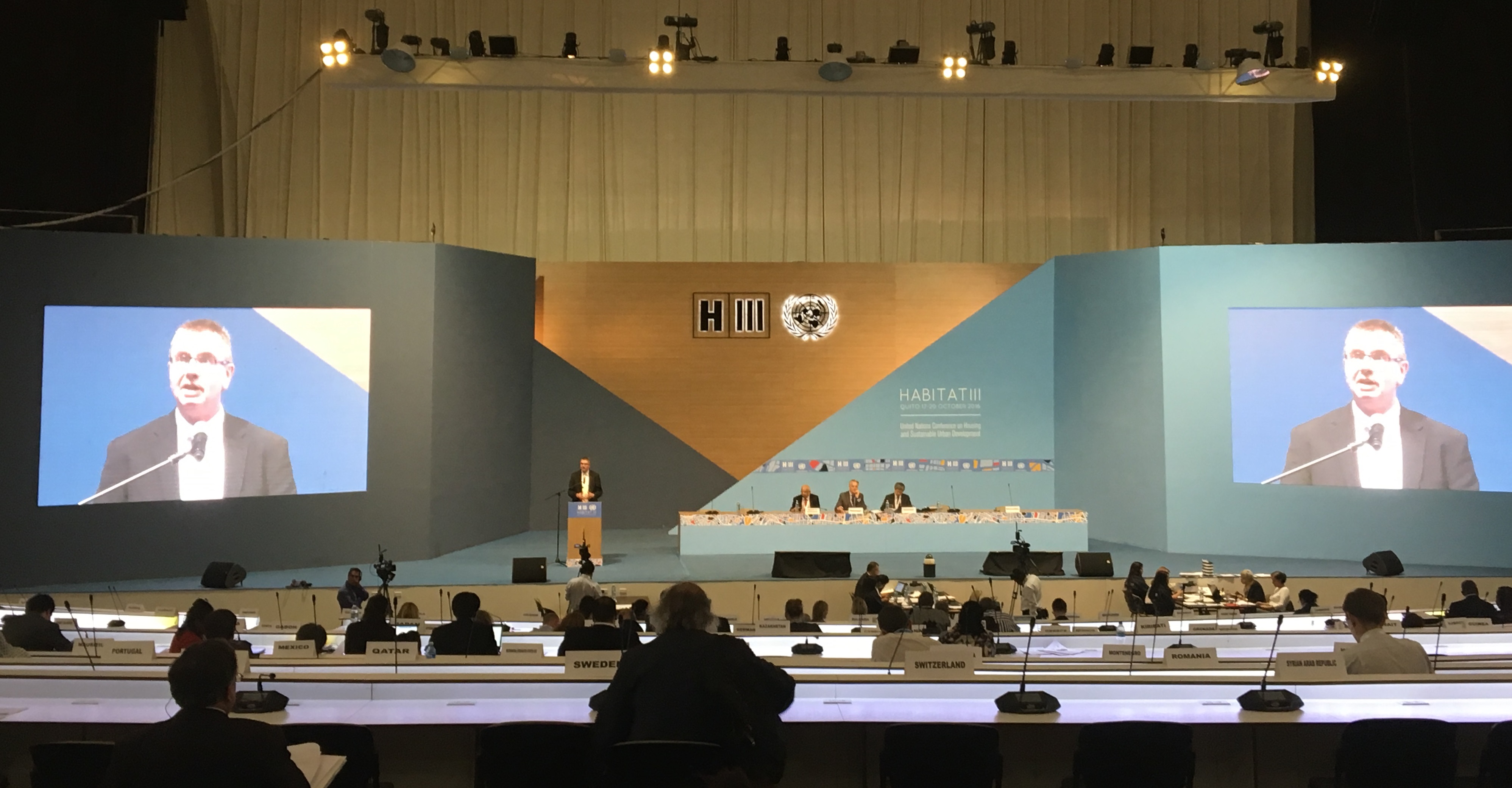
Cycling is supported and promoted in the New Urban Agenda
After three years of negotiations,The New Urban Agenda (NUA) has been adopted at the bi-decennial United Nations (UN) Conference on Housing and Sustainable Urban Development (Habitat III) which took place on the 17th – 20th of October 2016 in Quito, Equador. The work of ECF and WCA was rewarded: cycling has a prominent place in the cities of tomorrow!
Heads of States and Governments, Ministers and representatives of sub-national and local governments, civil society, local communities, the private sector, the scientific and academic community as well as other relevant stakeholders participated in a process of drafting the NUA. The European Cyclists’ Federation (ECF) and the World Cycling Alliance (WCA) have also played an active role in it, as a result of which great achievements have been reached: ‘Cycling is well-reflected in the New Urban Agenda and for that we are very happy today’ – said Bernhard Ensink, the Secretary General of the ECF, in his statement at the HabitatIII Plenary 161020.
In the New Urban Agenda cycling is strongly linked to healthy, accessible, safe, inclusive, green and livable public spaces; it also relates to cycling as encouraging culture exchange, informal markets, participatory processes, making our cities more economically vibrant and generating a higher quality of life. Therefore, signatories of the NUA have committed themselves to promote safe, inclusive, accessible, green, and quality public spaces, including cycling lanes, as well as to promote walkability and cycling towards improving health and well-being. In addition, they also pledged to take measures to improve road safety, actively protect and promote cycling mobility, encourage national, sub-national, and local governments to develop and expand financing instruments for cycling infrastructure.
The NUA also strives to make cities inclusive and accessible for all, stressing a special attention to the needs of women and girls, children and youth, older persons and persons with disabilities, and those in vulnerable situations, therefore cycling is referred to as more preferential mode of transport compared private motorized transportation.
‘Cycling is a key tool in achieving the cities we need and the cities we want based on the New Urban Agenda’ – claimed Bernhard Ensink, calling Habitat 3 secretariat, stakeholders and global citizens to consider the importance of cycling in the implementation of the New Urban Agenda, and to work together in order to create cycling-inclusive cities.
Although there is no implementation process foreseen in the NUA, the ECF and WCA will continue to work together and to advocate for local, regional, national and supra-national authorities to implement the commitments they took by signing the NUA.
Regions:
Network/Project Involved:
Topics:
Contact the author
Recent news!
Upcoming events
Contact Us
Avenue des Arts, 7-8
Postal address: Rue de la Charité, 22
1210 Brussels, Belgium









